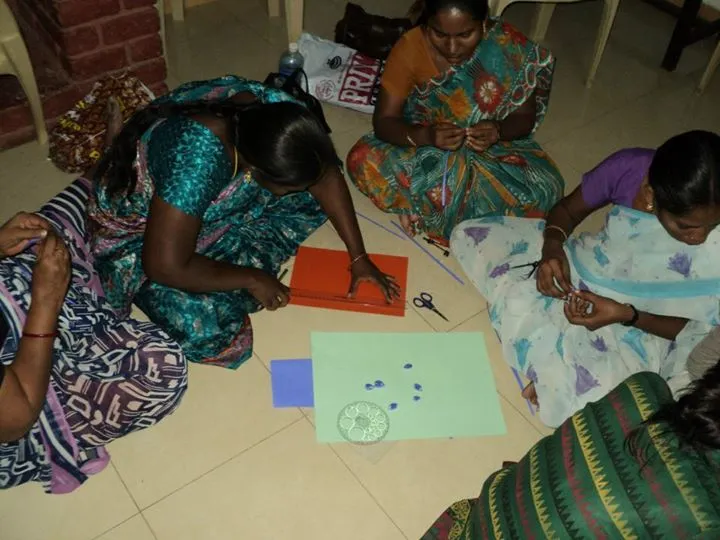Saksham: empowering the unemployed with a skill based training model

Pritish Anand was in his fifth semester at Vellore Institute of Technology (VIT) studying biotechnology, when one day he stumbled upon the hitherto unknown universe of social entrepreneurs. He was never the same again. That night as he revisited the stories of Sanjit ‘Bunker’ Roy, Ashoka’s change-makers and Arvind Eye Hospital he decided that he wanted to become a social entrepreneur himself. Roy’s Barefoot College model especially made a big impression on his young mind.
Around the same he met Anu Gupta, a fellow VIT student, who shared his vision. Thus was born Saksham as a for-profit social enterprise. “The goal was to make skill development a core part of the education curriculum. We came up with this idea after a lot of deliberation because core skills are outside of the classroom,” says Anand. Saksham’s model is to leverage those who are skilled but unemployed to train students, and unemployed adults who lack skills. The products that are created are to be sold in retail markets and to corporates.
Anand and Anu decided to test pilot this model in Vellore and tied up with a non-profit that looks after HIV affected destitute women. The first batch of trainees numbered 15, with five trainers, who taught the women paper-craft. “This was a three month training program to teach them quilling, making boxes for ice-cream sticks and so on. The women, who earlier felt ostracized, now felt socially integrated and discovered a new found sense of dignity,” adds Anand. Saksham has tied up with Balaji Stores, located in VIT to buy the products and resell them to other retail outlets. Once the training is over, the women can expect to make upwards of Rs 2000 per month, depending on what they produce. A quilling card for instance, costs Rs 10 to make, and is sold for Rs 30.
In Feburary 2013, Anand and Anu’s dream project, received a shot in the arm when Saksham won ‘Best Skill Development Business plan’ in the student category, at Power to Empower, a national business plan competition conducted by National Skill Development Competition (NSDC) and India@75. Buoyed by the success of the Vellore pilot and the recognition by NSDC, Anand is now conducting a bigger pilot in Mumbai at Jafari High School (run by one of the biggest Shia Trusts in the world), where the majority of the students are Muslim. With the Mumbai pilot, the plan is to hire professional trainers who are currently unemployed, and pay them a salary (the Vellore trainers were all unpaid volunteers). Saksham will use the resource room in Jafari that accommodates 30 people to train students and one parent from each of their families seven days a week.
“We are currently conducting a community survey to understand what kind of training they will be interested in, and since this is a Muslim neighborhood we wanted to make sure that the women will not find any difficulty in attending. The plan is to hire 30 trainers and are hoping to skill atleast 210 students and members of their families,” remarks Anand. The training will continue to be in paper-craft: ranging from simple paper cards to quilling cards, which is of a higher order. Besides paper-craft, Saksham has plans to train individuals in pottery and embroidery.
Anand is currently a Teach for India (TFI) fellow and the Jafari project is part of TFI’s ‘Be the Change’ initiative. Fellows from TFI spend two full years teaching in a low-income school and they undertake an assignment (Be the Change) where they ideate, plan and execute a project that benefits their classroom, the school or the society as a whole.
Anand is looking for investors to invest in Saksham and is in talks with certification authorities to certify the training. Depending on how the Mumbai pilot goes and funding, Saksham will scale in locations that are hotspots in paper crafts, handicrafts, pottery and tailoring. “We aim at targeting 2500 trainees in the second year and 6000 in the third year,” remarks Anand.







